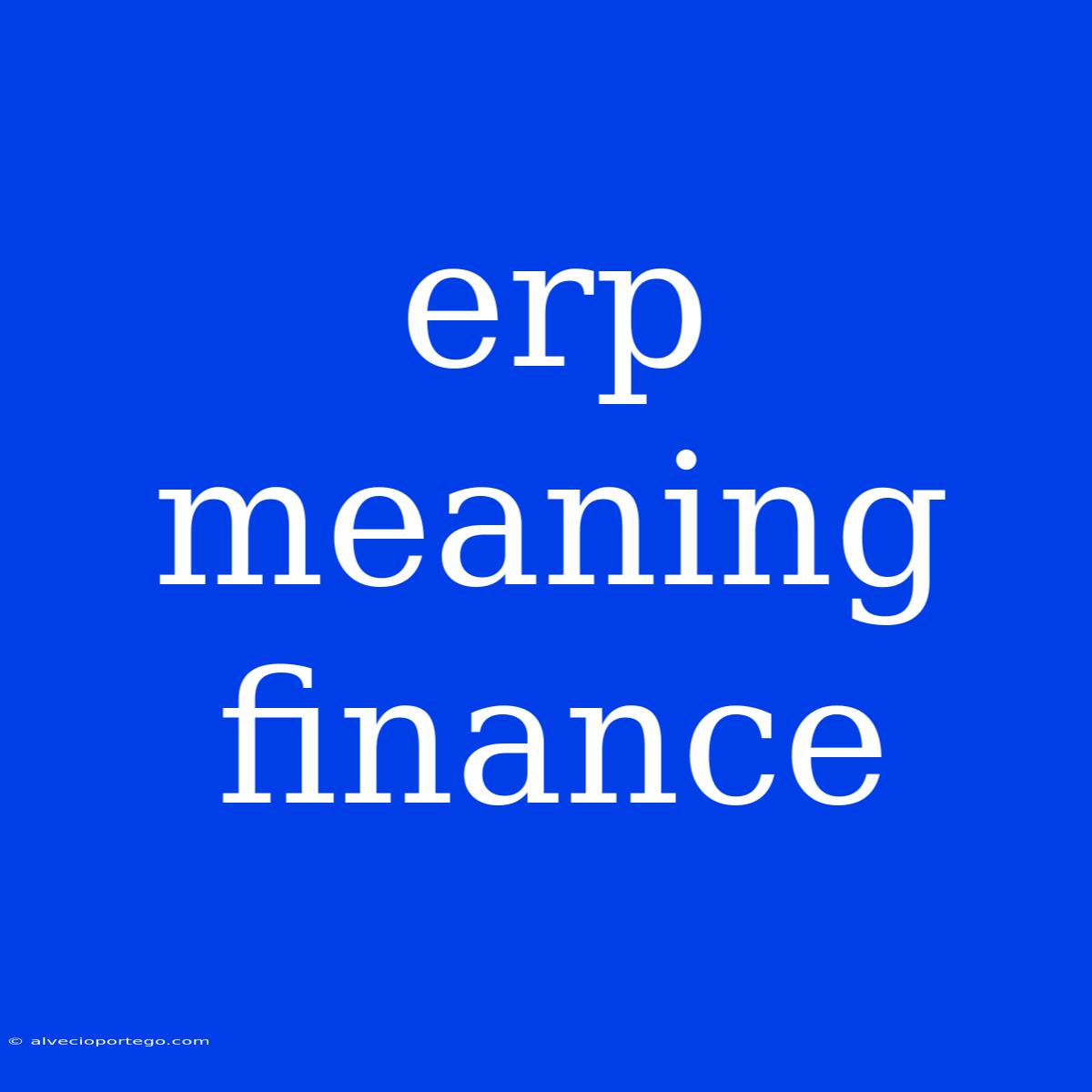ERP Meaning in Finance: Streamlining Your Financial Operations
ERP, short for Enterprise Resource Planning, has become a crucial part of modern business management, especially in the finance department. But what exactly does it mean for finance, and how can it benefit your organization?
Understanding ERP in Finance
ERP systems are integrated software applications that manage and automate various business processes within an organization. For finance, this translates to streamlining financial operations, enhancing data accuracy, and improving decision-making capabilities.
Key Benefits of ERP for Finance
- Centralized Data Management: ERP systems provide a single, centralized platform for all financial data, eliminating the need for disparate spreadsheets and reducing the risk of errors.
- Automated Processes: Finance functions like accounts payable, accounts receivable, budgeting, and forecasting can be automated, freeing up time for more strategic tasks.
- Improved Reporting and Analysis: Real-time access to accurate financial data allows for better reporting, forecasting, and analysis, enabling informed decision-making.
- Enhanced Audit and Compliance: ERP systems facilitate the tracking and management of financial transactions, simplifying audits and ensuring compliance with regulations.
- Increased Efficiency: By automating tasks and centralizing data, ERP systems significantly improve the overall efficiency of the finance department.
- Reduced Costs: Streamlined processes, improved data accuracy, and automation can lead to significant cost savings for the finance department.
Common Finance Modules in ERP Systems:
- Financial Management: Handles core accounting functions like general ledger, accounts payable, accounts receivable, and budgeting.
- Treasury Management: Manages cash flow, investments, and foreign exchange operations.
- Fixed Asset Management: Tracks and manages fixed assets, ensuring accurate depreciation and reporting.
- Reporting and Analytics: Provides tools for generating financial reports, analyzing data, and identifying trends.
Choosing the Right ERP System
Selecting the right ERP system is crucial for your organization's success. Factors to consider include:
- Industry-specific needs: Some ERP systems offer specialized modules for particular industries.
- Scalability: Ensure the system can grow with your business needs.
- Integration with existing systems: Seamless integration with your existing software is essential.
- Cost: Evaluate the total cost of ownership, including implementation, training, and ongoing maintenance.
Conclusion
Implementing an ERP system can be a significant investment for your finance department, but the benefits are significant. By streamlining processes, enhancing data accuracy, and improving decision-making capabilities, ERP systems can transform your financial operations, leading to greater efficiency, cost savings, and overall organizational success.

